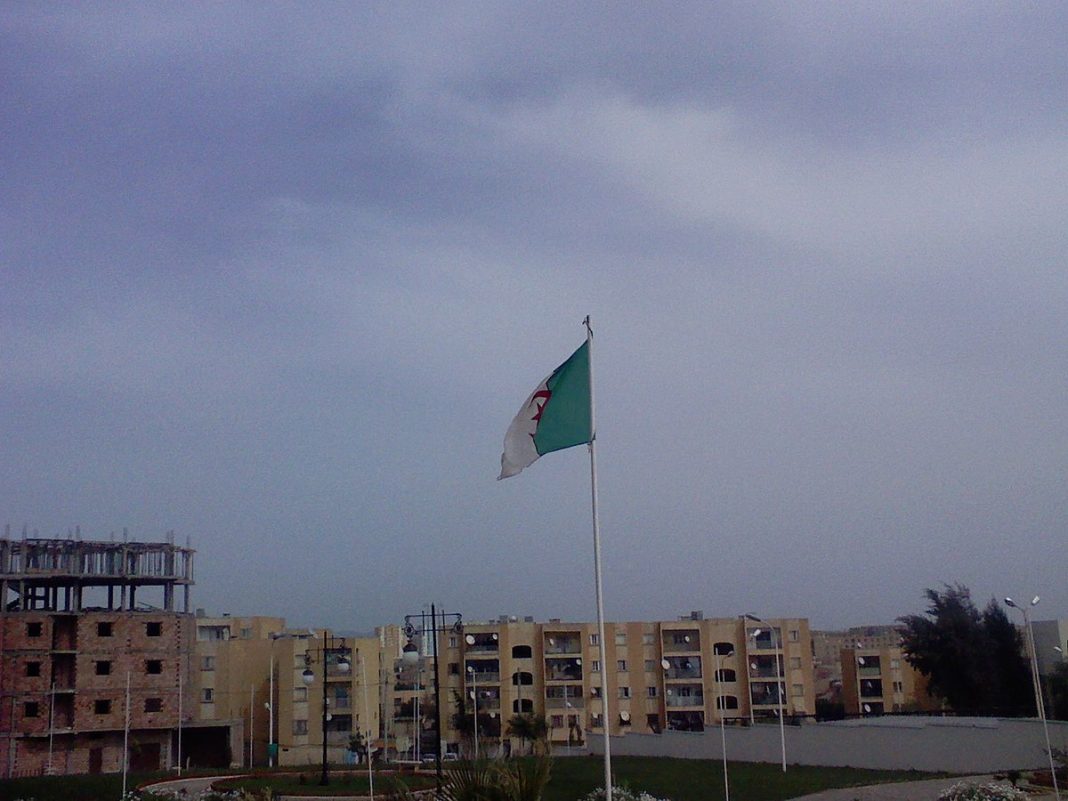How can we say that Papicha is Algerian, if the film was banned without any explanation in the country shortly before its release? It is a film that belongs to Algerians but not necessarily to Algeria. Given that some accused the film of being western propaganda, though, this description still falls short. Perhaps it is better, then, to say that Papicha is a film that belongs to Algerian women or, to be more precise, to ‘papichas’.
The term ‘papicha’, as well as being the film’s title, is one tossed about frequently throughout the film. A typical example of ‘algérois’, a mix of French and Algerian Arabic, at times as a term of endearment and at others as an insult. A ‘papicha’ is essentially a pretty, funny and emancipated girl; someone who studies, someone who dreams and thinks for herself. In other words, someone who challenges the status quo of Algerian society in the 90s. Someone like Nedjma, the film’s protagonist: a French literature student with future plans of becoming a fashion designer who features as the film’s protagonist.
The 90s in Algeria are often referred to as ‘la décennie noire’ (‘the black decade’) – which is about as cheery as it sounds. In 1992, the Algerian Civil War broke out with Islamist groups fighting the incumbent government after their electoral victory at the polls. The 1990s in Algeria represent a call back to the most radical version of Islam possible in the country and this is what we see in the film: Nedjma’s successful journalist sister is shot, her French professor is kidnapped whilst giving a lecture, and the autochthonous white haïk garment is replaced by Middle Eastern black hijabs.
Though the threat posed by rapacious men is omnipresent Papicha, women arguably carry out the most shocking scenes of Islamist violence. Mounia Medour, the film’s director, is hence able to mimic the complexity of gender relations; women often perpetuate the structures by which they are oppressed.
Despite being inherently political, this is an extraordinarily artistic film. As the Islamists’ reign of terror becomes increasingly restrictive, colours slowly start fading from our TV screens, a metaphor for individuality vanishing into thin air. The boutique from which Nedjma would buy sequins, colourful fabric and leopard print lingerie only sells black clothing by the end of the film. The best Nedjma can do is resist – a dangerous act that will not go unnoticed by those around her.
The main criticism generally levelled against the film is that Mounia Medour’s target audience is French and that, consequently, she reinforces stereotypes regarding Algeria . Nonetheless, it seems to me that Medour is representing a quintessentially Algerian form of feminism. For Nedjma, resistance is synonymous with being faithful to Algeria: when a boy she likes offers to take her to France to escape the violence, she turns his offer down right away, angry and disappointed at his cowardice. Her attitude may demonstrate a naïve and stubborn belief that things can change but – more importantly – Nedjma’s feminism does not come into conflict with her Algerian identity. This is a film as much about resentment as about love towards one’s country.
Though set in the 90s, Papicha still has a lot to tell us about the way Algeria is today. It is true that women no longer fear for their lives if they do not wear the hijab outside or ululate too loudly, but in a country where femicides fill the newspapers and less than a fifth of women work, there are still a lot of ‘papichas’ awaiting change.


